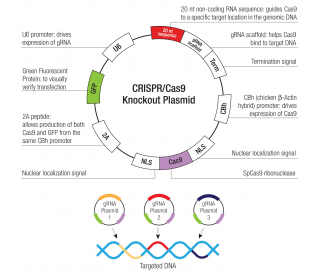Purity
>95%, by SDS-PAGE under reducing conditions and visualized by silver stain
Endotoxin Level
<0.01 EU per 1 μg of the protein by the LAL method.
Activity
Measured by its ability to antagonize alpha -MSH-induced cAMP accumulation in HEK293 human embryonic kidney cells transfected with human Melanocortin-4 Receptor. Ollmann, M.M. et al. (1997) Science 278:135. The ED 50 for this effect is typically 0.025-0.15 µg/mL in the presence of 10 ng/mL of alpha -MSH.
Source
E. coli-derived Ser82-Thr131
Accession #
N-terminal Sequence
AnalysisSer82
Predicted Molecular Mass
5.7 kDa
634-AG |
| |
Formulation Lyophilized from a 0.2 μm filtered solution in PBS. | ||
Reconstitution Reconstitute at 100 μg/mL in sterile PBS. | ||
Shipping The product is shipped at ambient temperature. Upon receipt, store it immediately at the temperature recommended below. | ||
Stability & Storage: Use a manual defrost freezer and avoid repeated freeze-thaw cycles.
|
Background: AgRP/ART
Agouti-Related Protein (AgRP), the protein product of the Agouti-Related Transcript (ART), is a neuroprotein that regulates energy metabolism and the development of obesity by antagonizing alpha -melanocyte stimulating hormone ( alpha -MSH) action on MC-3 and MC-4 receptors (1-4). AgRP is predominantly expressed in the hypothalamus and adrenal medulla (5). Mature mouse AgRP is a 111 amino acid (aa) polypeptide; its C-terminal portion contains ten conserved cysteines that form five disulfide bonds (5, 6). Within the C-terminal region, mouse AgRP shares 80% and 90% aa sequence identity with human and rat AgRP, respectively. It also shares 44% aa sequence identity with Agouti. As with Agouti, the C-terminal cysteine-rich region is sufficient for biological activity (7). AgRP, however, is 100 times more potent than Agouti in antagonizing MC-3 and MC-4 receptors (8). AgRP also induces the beta -arrestin dependent endocytosis of MC-3 and MC-4 (9). Hypothalamic expression of AgRP is up-regulated in obesity and diabetes (5, 10), and chronic AgRP administration increases food intake and weight gain in rats (11). Genetically-linked polymorphisms of AgRP in humans are associated with susceptibility to anorexia nervosa (12, 13). In addition, AgRP inhibits the ACTH-induced synthesis of steroid hormones via a mechanism that does not involve melanocortin receptors (14).
References:
Martin, N.M. et al. (2006) Peptides 27:333.
Fan, W. et al. (1997) Nature 385:165.
Ollmann, M.M. et al. (1997) Science 278:135.
Arora, S. and Anubhuti (2006) Neuropeptides 40:375.
Shutter, J.R. et al. (1997) Genes Dev. 11:593.
Kiefer, L.L. et al. (1998) Biochemistry 37:991.
Jackson, P.J. et al. (2002) Biochemistry 41:7565.
Fong, T.M. et al. (1997) Biochem. Biophys. Res. Commun. 237:629.
Breit, A. et al. (2006) J. Biol. Chem. 281:37447.
Katsuki, A. et al. (2001) J. Clin. Endocrinol. Metab. 86:1921.
Small, C.K. et al. (2001) Diabetes 50:248.
Vink, T. et al. (2001) Mol. Psychiatry 6:325.
Dardennes, R.M. et al. (2007) Psychoneuroendocrinology 32:106.
Doghman, M. et al. (2007) Mol. Cell. Endocrinol. 265-266:108.
Long Name:
Agouti-related Protein
Entrez Gene IDs:
181 (Human); 11604 (Mouse)
Alternate Names:
agouti related protein homolog (mouse); agouti-related protein; AgRP; Agrt; AGRTMGC118963; ART; ARTagouti (mouse) related protein; ASIP2










